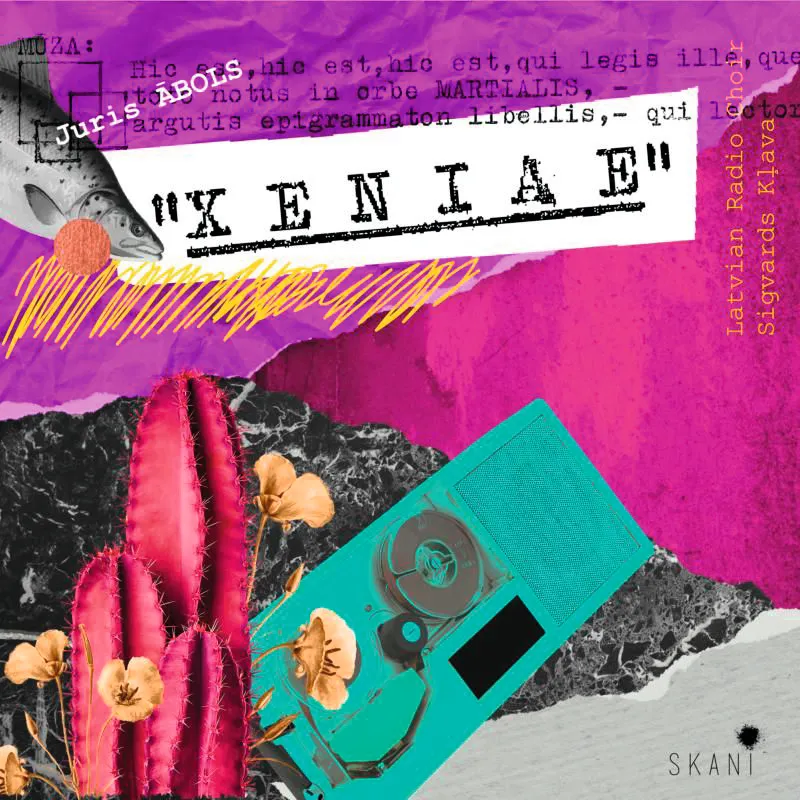
Ābols Opera Xeniae Solo instrumentalists; Latvian Radio Choir/Sigvards Klava SKANI LMIC140 48:27 mins
For Latvian Radio Choir artistic director Sigvards Klava, his compatriot Juris Ābols (1950-2020) was more ‘an event, a happening, an experience’ than a composer. Recorded in the basement of Klava’s house in Riga, 2010, Opera Xeniae is testament to a unique figure, whose fascination with global cultural history and human behaviour found expression in wild creative imagination.
The work is a Dadaist collision of characters known and invented from ancient and modern times, centring on the Roman writer Martial, whose book of epigrams Xenia (‘gift’) loosely forms the basis of Ābols’s libretto. Martial himself features alongside his own addressees, Thaïs – ‘the erotic aspect’; Muse – ‘the creative aspect’; Demostratos; Coryphaeus – and Ābols’s seemingly random and part-inebriated Dankeschön, Gigabyte and Megapixel.
They are lovingly sung by members of the Choir, which otherwise observes their nonsensical but heated arguments covering topics from the meaning of art, to serotonin in bananas and ‘how you bake cakes from a pig’.
Both text and score, musically realised by Klava, Ābols and three instrumentalists, are a collage of languages and styles. Quotations from Monteverdi’s L’incoronazione di Poppea represent Martial and the opera’s nominal setting in the Macedonia of his youth – and, by inference, the grandness of great art. But juxtaposing episodes in klezmer, folk and psychedelic jazz – with sound effects including bodily functions – send any high-culture pretensions not so much low as spinning sideways.
It’s brilliant in ways impossible to unravel, pointing to truths about human nature – and the fantastical wonder of opera as an art form.
Steph Power